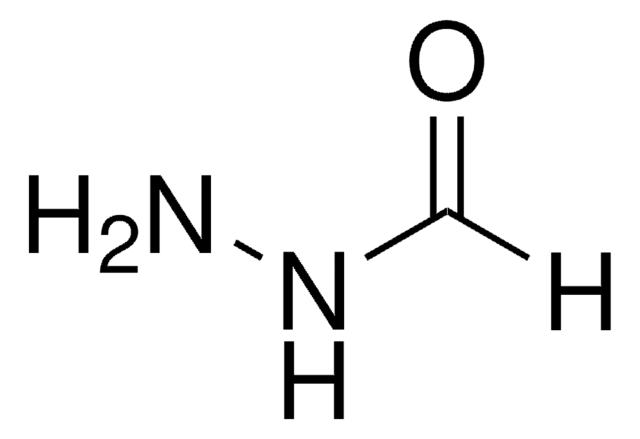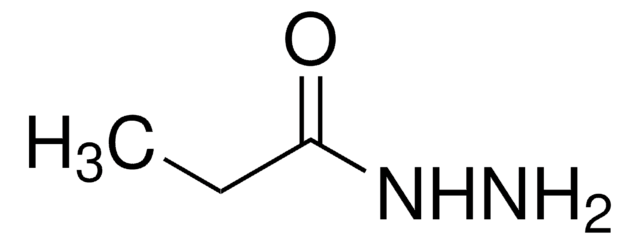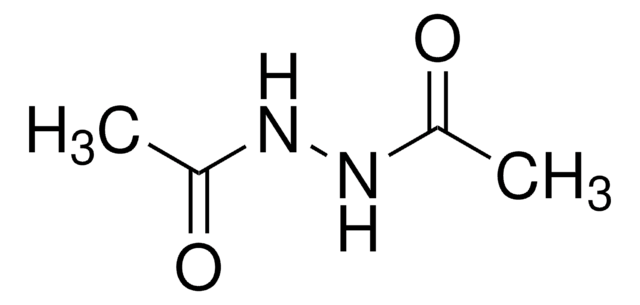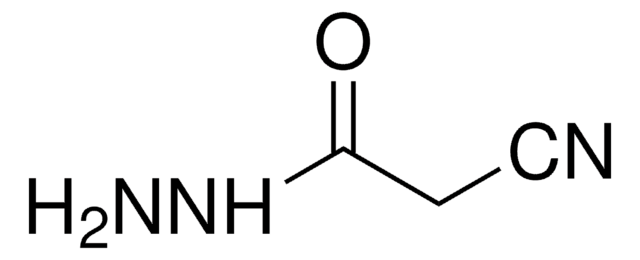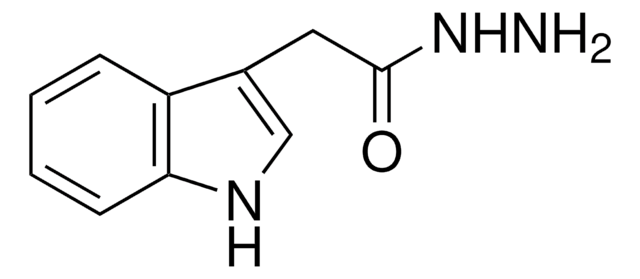A8309
Acethydrazide
90%
Sinónimos:
Acetic acid hydrazide, Acetylhydrazine
About This Item
Productos recomendados
assay
90%
form
flakes
impurities
<10% acetic acid
bp
129 °C/18 mmHg (lit.)
mp
58-68 °C (lit.)
SMILES string
CC(=O)NN
InChI
1S/C2H6N2O/c1-2(5)4-3/h3H2,1H3,(H,4,5)
InChI key
OFLXLNCGODUUOT-UHFFFAOYSA-N
¿Está buscando productos similares? Visita Guía de comparación de productos
Categorías relacionadas
General description
Application
signalword
Danger
hcodes
Hazard Classifications
Acute Tox. 3 Oral - Carc. 2 - Eye Irrit. 2 - Muta. 2 - Skin Irrit. 2
Storage Class
6.1C - Combustible acute toxic Cat.3 / toxic compounds or compounds which causing chronic effects
wgk_germany
WGK 1
flash_point_f
235.4 °F - closed cup
flash_point_c
113 °C - closed cup
ppe
dust mask type N95 (US), Eyeshields, Faceshields, Gloves
Certificados de análisis (COA)
Busque Certificados de análisis (COA) introduciendo el número de lote del producto. Los números de lote se encuentran en la etiqueta del producto después de las palabras «Lot» o «Batch»
¿Ya tiene este producto?
Encuentre la documentación para los productos que ha comprado recientemente en la Biblioteca de documentos.
Los clientes también vieron
Nuestro equipo de científicos tiene experiencia en todas las áreas de investigación: Ciencias de la vida, Ciencia de los materiales, Síntesis química, Cromatografía, Analítica y muchas otras.
Póngase en contacto con el Servicio técnico